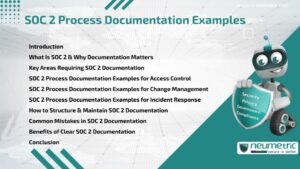Table of Contents
ToggleIntroduction
In the ever-evolving digital era, the introduction of the Digital Personal Data Protection Act 2024 marks a significant milestone in personal data security and privacy. As individuals and organisations alike navigate the intricate pathways of digital footprints, this legislation stands as a beacon of heightened privacy, stringent security & ethical data handling. The Act is a comprehensive ensemble of legal frameworks, meticulously designed to bolster the rights of individuals over their personal data. It emerges as a response to the increasingly complex and oftentimes opaque data handling practices in the digital realm.
The legislation crafts a narrative where individuals’ rights are paramount & organisational data practices are transparent, ethical & regulated. Every clause and provision is infused with the essence of accountability, privacy & ethical data stewardship.
Despite its comprehensive nature, the Act is imbued with complexities. This piece aims to unravel these intricate layers, offering readers a simplified, yet profound, understanding of the Act’s implications, applications & navigational pathways.
Key Provisions of the Act
Personal Data Definition
At the Act’s core lies a refined definition of personal data. It encompasses an extensive array of information, casting a wide net to ensure holistic privacy and security. From personal identifiers to digital footprints, every data element falls under the vigilant eyes of regulation.
Rights of Individuals
The Act empowers individuals with unprecedented control over their data. Consent, access & rectification rights are not just legal provisions but foundational principles, ensuring that every individual is the ultimate custodian of their data.
Obligations of Data Collectors
For entities entrusted with data collection and processing, the Act delineates stringent obligations. Transparency, ethical practices & stringent security protocols are mandated, with every breach and non-compliance attracting stringent penalties.
Practical Implications for Individuals
Enhanced Privacy
The crux of the Act resides in bolstering the privacy of individuals. Every person gains the legal right to exert unprecedented control over their personal data. The barriers that previously existed, where data privacy was often nebulous and elusive, are being systematically dismantled. Individuals can now expect a transparent and explicit approach to the collection, processing & handling of their data, heralding an era where privacy is not aspirational but attainable and legally protected.
Consent Mechanism
The Act accentuates the essence of informed and unequivocal consent. The days where consent was embedded in complex, unreadable terms and conditions are fading. In its place, arises a regime where every instance of data collection is preceded by clear, concise & comprehensive information. Individuals are empowered to make informed decisions, granting consent not as a mere formality but as an expression of explicit approval, rooted in understanding and choice.
Data Portability
An individual’s ability to access and transfer their data seamlessly between different service providers is another cornerstone of the DPDP Act 2023. It erodes the silos that often cage personal data within the confines of specific platforms or services. Individuals are endowed with the flexibility to move their data, ensuring that the choice of service providers is dynamic & the control over personal data is unwavering.
Right to Access and Correction
The Act ushers in an era where individuals are not passive spectators but active participants in the data ecosystem. Every person has the right to access their data, review it & demand corrections where necessary. It ensures that personal data is not just secure but accurate, reflecting the true and current state of the individual’s information.
Right to Erasure
A noteworthy implication is the “right to be forgotten” or the right to erasure. Individuals can request the deletion of their personal data from a platform, ensuring that their digital footprint can be erased or minimised. This right is instrumental in an age where data permanence on the internet can have long-lasting implications.
Security and Breach Notifications
Security of personal data is fortified & in the event of a breach, timely notifications are mandated. Individuals will be informed promptly if their data is compromised, ensuring that necessary remedial actions can be undertaken swiftly to mitigate potential damages.
Organisational Challenges and Compliance
Policy Overhaul
Organizations are now ushered into an era where data policies require comprehensive overhauls. Every clause, provision & practice is to be scrutinised, evaluated & aligned with the Act’s stringent requirements.
Implementation Challenges
The pathway to compliance is intricate. Organisations must navigate data overhauls, policy revamps & technological integrations. Each step is complex yet essential, marking the transition to an era of ethical data stewardship.
Compliance Monitoring
Continuous monitoring and audits are essential. Organisations are entrusted with the onus of ensuring ongoing compliance, a narrative where every data practice is transparent, ethical & aligned with legal mandates.
Role of Technology in Compliance
Automation in Data Management
In the nuanced landscape of compliance, technology is a formidable ally. Automation tools facilitate streamlined data management, ensuring efficiency, accuracy & compliance.
AI & Analytics
AI emerges as the catalyst transforming raw data into actionable insights. In the realms of privacy and security, AI ensures real-time threat detection, personalised user experiences & ethical data handling.
Blockchain for Data Integrity
Blockchain technology is revolutionising data integrity and security. Every piece of data is chronologically and securely recorded, ensuring transparency, integrity & indelibility.
Legal and Ethical Considerations
Legal Implications
Non-compliance is not an option. The Act enforces stringent penalties, ensuring that every breach and violation is addressed, penalised & rectified.
Ethical Data Practices
Beyond legal mandates, the Act fosters a culture of ethical data practices. Every entity handling data is not just a custodian but an ethical steward, ensuring that data practices transcend legal requirements and are infused with ethical considerations.
International Data Transfers
The Act meticulously addresses international data transfers. Every cross-border data movement is scrutinised, regulated & ensured to uphold the sanctity of privacy and security.
Preparing for the Digital Personal Data Protection Act in 2024
Action Plan
Creating a systematic and robust action plan is the first essential step. This entails a thorough review of current data handling and processing protocols, identification of potential gaps and weaknesses & development of tailored strategies to address them. The action plan should be detailed, setting clear objectives, timelines & responsibilities to ensure a cohesive and timely implementation.
Resource Allocation
The implementation of the DPDP Act 2023 demands meticulous resource allocation. Human resources should be adequately trained to understand and adapt to the new legal requirements. Financial allocations are crucial to ensure that necessary technology and tools are procured to bolster data protection measures. Technology becomes a pivotal resource, serving as the backbone to facilitate, enforce & monitor compliance.
Policy Review and Modification
Existing data protection and privacy policies should be rigorously reviewed in light of the new Act. This involves an in-depth analysis to identify and amend clauses and provisions that are not in alignment with the new legal mandates. Modification of policies is not just a reactive step but should be approached proactively to not only meet but exceed the stipulated legal requirements.
Staff Training
A well-informed and trained staff is the cornerstone for effective compliance. Training programs should be designed and executed to ensure that every member of the organisation, especially those handling and processing data, are abreast with the new legal mandates, ethical considerations & organisational policies arising from the DPDP Act 2023.
Technology Integration
The role of technology in ensuring compliance cannot be overstated. Organisations should invest in advanced technologies and tools that facilitate efficient data management, security & privacy. Automation, AI & machine learning can play a pivotal role in enhancing real-time data monitoring, security protocols & privacy enhancements.
Compliance Audits
Regular compliance audits should be institutionalised to ensure ongoing adherence to the DPDP Act 2023. These audits should be comprehensive, evaluating not just the technical but also the ethical, procedural & legal aspects of data handling and processing. Findings from these audits should be meticulously analysed & corrective actions should be swiftly executed.
Stakeholder Engagement
Engaging stakeholders, including employees, customers & partners, is crucial. Awareness campaigns can be conducted to inform them about the new data protection measures, ensuring transparency and fostering a culture of collective responsibility towards data privacy and security.
Continuous Improvement
Compliance with the DPDP Act in 2024 is not a one-time activity but a continuous journey. Organisations should commit to a culture of continuous improvement, constantly evaluating, refining & enhancing their data privacy and security measures to align with legal advancements, technological innovations & evolving data threats and vulnerabilities.
Conclusion
The Digital Personal Data Protection Act 2023 marks the dawn of a new era. It’s a narrative where privacy is paramount, security is stringent & ethical data practices are the norm.
FAQs:
Is Data Protection Act 2023 notified?
Yes, the Data Protection Act 2023 has been notified and is in effect.
What is the data privacy law in India 2023?
The data privacy law in India 2023 is the Digital Personal Data Protection Act, enhancing individual’s control over their personal data.
What are the highlights of DPDP Act 2023?
The DPDP Act 2023 emphasizes informed consent, data portability & stringent data security and privacy measures.
How will DPDP Act 2023 affect e-commerce?
E-commerce platforms must ensure enhanced data security, obtain explicit consent for data collection & offer data portability under the DPDP Act 2023.





